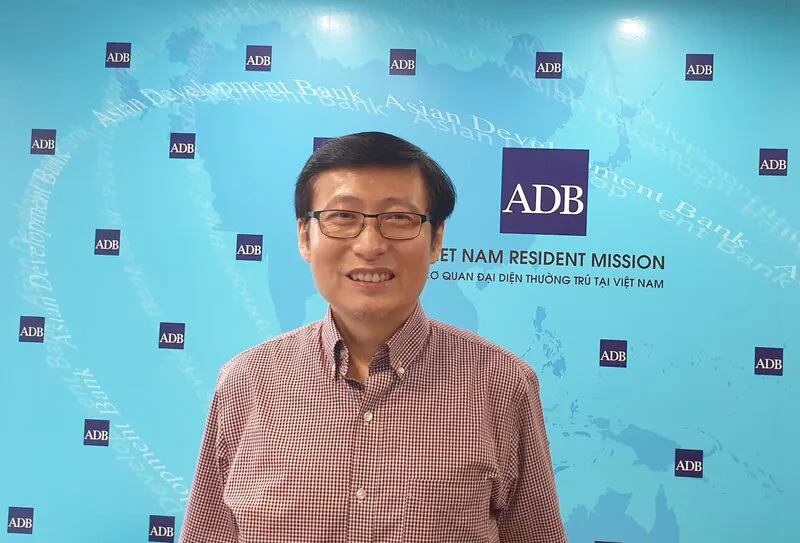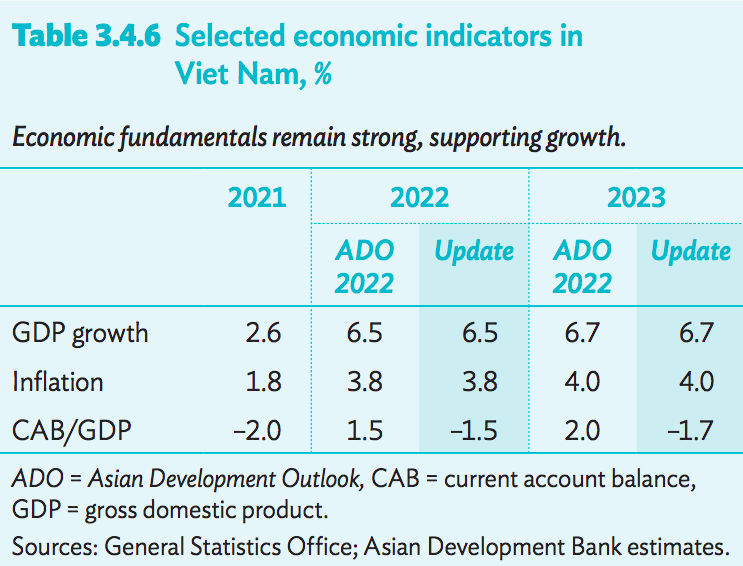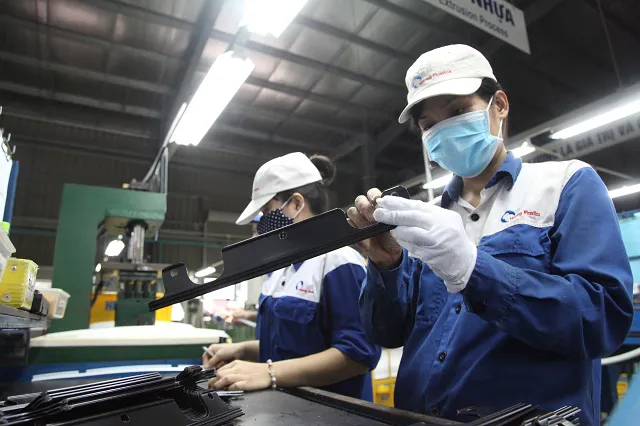Local businesses stay central in Vietnam’s quest for economic self-reliance
The Government needs to create the right conditions for Vietnamese enterprises to be independent in creativity and innovation, a key factor contributing to the economy’s self-reliance.
Principal Country Economist of the Asian Development Bank (ADB) in Vietnam Nguyen Minh Cuong shared with The Hanoi Times his view on Vietnam’s economic prospects and challenges ahead.
| Economist Nguyen Minh Cuong. |
ADB continues to maintain its favorable outlook for Vietnam with a GDP growth forecast of 6.5% in 2022, and 6.7% in 2023. What is your view concerning this decision?
From our point of view, Vietnam’s strong economic fundamentals are the most important factor driving the country’s recovery in the 2022-2023 period. This is also the difference in Vietnam’s growth story compared to others.
Vietnam’s macroeconomic stability has been solidified for many years before the Covid-19 outbreak.
As the pandemic impacts are subdued and Vietnam shifted its focus to socio-economic growth, the country’s strong fundamentals have created the environment for a rapid and sustainable recovery. A highlight has been Vietnam’s public debt at 43% of the GDP, which is an ideal figure considering other regional countries such as Thailand or Malaysia are forced to rising their respective debt ceiling to 60%.
Meanwhile, Vietnam’s flexible management of monetary policy has also aided the recovery process, as the credit growth target is set at 14% year-on-year to boost growth and contain inflation at the same time.
How do you assess the recovery of the business community after two years of fighting the Covid-19 pandemic?
I am impressed with the recovery of the local businesses. In the first eight months of 2022, as many as 101,300 companies were registered, representing a 24.2% increase in their number, which translates into a 16.2% increase in the employed workforce compared to the same period in 2021. In addition, 48,100 firms resumed operations, up 43.8%, bringing the total number of new and reopened firms to 149,500, up 31.1%.
Such positive figures showcase the confidence of the business community in Vietnam’s strong economic fundamentals, and also progress in the country’s administrative reform.
However, as the economy is returning to normal, there would be a rising demand for credit and workforce. A shortage of workers and a high credit expansion rate [nearly 10% in eight months compared to the year’s 14% target] could be a concern for businesses’ recovery.
On the other hand, this also reflects that certain economic sectors have moved up to higher-added value chains and the current worker pools could not meet demands for new jobs.
In the mid-and long term, Vietnam should further improve the labor market to enhance its competitiveness and ensure sufficient supplies for the economy. This would require comprehensive solutions in terms of skill training, social welfare, and unemployment insurance for locals.
How do you see Vietnam’s inflation situation this year and the next? What are your recommendations for Vietnam to maintain growth in the upcoming years?
ADB’s economic outlook report expected Vietnam’s inflation rate in 2022 at 3.8% year-on-year, below the Government’s target of 4%. A combination of flexible monetary and fiscal policies management, including lowering the environmental protection tax on petrol products, has cooled down the prices.
Vietnam’s food security has also played a major part in containing inflation in 2022. But for next year, the situation would be different. In case of prolonged geopolitical tension and assuming China eases its Covid-19 restriction measures, pressure on rising petrol prices would mount.
But to date, ADB and other international organizations have all shared the view that the global economy in 2023 would slow down or even fall into a recession 2023, which should lead to lower petrol prices. Nevertheless, geopolitical uncertainties are hard to predict.
As I have mentioned before, Vietnam has strong economic fundamentals, which not only serve as driving forces for growth but also create room for the country to address external shocks for the remainder of the year.
However, as traditional growth engines may diminish in the coming months, such as exports, on the unfavorable global economic outlook, others, especially public investment, would be key to supporting growth in the fourth quarter and subsequent years.
The priority for Vietnam in 2023 would be to accelerate the disbursement of public funds to help the country maintain high growth.
| Workers at Ha Long Plastic Company in Soc Son Industrial Park. Photo: Thanh Hai |
What is your view on the Government’s efforts to promote a self-reliant and highly resilient economy?
Every country, not only Vietnam, wants to have a certain degree of economic self-reliance. But Vietnam has certain advantages in this regard, including its capability to stay independent in food supply.
The Vietnamese Government has made it clear that self-reliance does not mean isolation but within the context of global integration. This is particularly important as the Vietnamese economy has a high level of economic openness, for which its trade performance is largely dependent on the global economy.
But the most important factor for Vietnam to ensure its self-reliance is the business community, especially the private sector.
Vietnam’s achievements of maintaining high growth at 6-6.5% during the past decade are largely thanks to the efforts of local businesses, as they are not only the platform to propel economic development, but also an engine for self-reliance.
Vietnam in its process of attracting FDI holds high expectations for technology transfer, but looking back to the history of FDI, General Motors did not come to Japan and transfer technologies to Toyota, or the same with Ford, Daimler Chrysler to Toyota, and Mitsubishi Motors.
These Japanese companies have to draw on their strength to develop and contribute to the prosperity of the Japanese automotive sector.
In the case of Vietnam, we should not expect foreign companies to transfer their technologies to local partners, as there has been modest progress in this regard. Recent scientific breakthroughs have largely come from local companies.
The Government needs to create the right conditions for Vietnamese enterprises to be independent in creativity and innovation, a key factor contributing to the economy’s self-reliance. There have been convincing examples in the automobile industry and the furniture sector, as many of them have been striving to master the core technologies and stay independent in every production process.
This would help the Vietnamese economy reduce its dependence on the foreign-invested sector. If Vietnamese companies cannot be self-sufficient, neither can the economy.
Thank you for your time!
Hanoi's economic growth in the first nine months of 2022 is estimated to expand by 9.69%. The positive economic performance has been reflected in the high number of new businesses established or resumed operation during the period. In the January-September period, Hanoi recorded 22,000 new businesses, up 25% year on year, while over 8,100 resumed operation, up 0.3%. |













